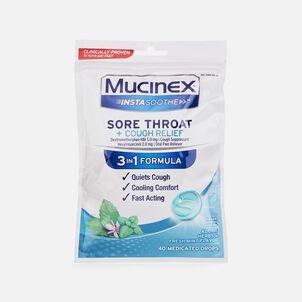 | SHOP NOW
| SHOP NOWIf you're enrolled in a high-deductible health plan (HDHP), you probably already know you can contribute tax-free money to a health savings account (HSA). One of the best perks of an HSA is that the money just keeps rolling over year to year, if you don't need to use it for medical bills.
Since money can stay in your HSA indefinitely, you'll hear people talk about opportunities for growth. But how can you really grow money in your HSA? For steady, secure growth, you can deposit it in an interest-bearing account. There are pros and cons to this approach, and your decision will come down to how you plan to use your HSA.

The safe, secure, interest-bearing account
There are lots of options for growing your HSA funds through savings. Your employer may offer one, but you can also check with a local bank or credit union — most of them have an HSA option. Whichever one you choose will become your HSA administrator.
Now, let's be clear about your growth potential -- the returns on your HSA aren't going to wow you right away -- 1% APY is common. But the key point is that your money is safe, since it's non-investment bank accounts are usually FDIC-insured. And HSAs opened with credit unions are NCUSIF-insured.
While your money will grow slowly, you don't risk losing it in market downturn. And even though the growth opportunity is modest, the interest earned in your account is still tax-free, just like the contributions.
We all have different risk tolerance and financial goals. If you're planning to use your HSA money throughout the year, or to withdraw it within just a few years, an interest-bearing account probably makes more sense than an investment account. You don't want to find yourself unable to cover your medical bills because the stock market crashed at just the wrong time.
If your employer has already selected an HSA administrator, you can just use the interest-bearing account they offer. But if you're picking your own, consider a few factors when comparing your options:
- Do they charge monthly fees? And if so, how much will you spend each year in fees? Some HSA administrators waive their fees if you reach a minimum balance — but that usually takes at least a few thousand dollars, so be realistic about how long it will take to reach that level.
- How easy is it to access your money? Do they offer a debit card or online bill pay, so you can pay medical expenses directly from your HSA?
- What rate of return are they offering? And how does it compare with other available options? (Keep in mind that if your balance is fairly low, the interest earned could canceled out by the monthly fees).
The good news is that if you're not happy with your return, you're not stuck with the first HSA administrator you choose. If you want to make a change, open an HSA with a different bank or credit union, and transfer your funds to the new account.
Believe it or not, there are no taxes involved when doing this, and you don't have to report it as a withdrawal from your HSA. (No, really! Check out page 7 of the IRS rules for HSAs.)
If you decide you'd rather invest some (or all) of your HSA funds — with the potential for bigger growth, but also the increased risks that come with investing — you can do that, too. Your bank or credit union will probably give you HSA investment options, or you can open an HSA with an administrator that does.
As always, when it comes to handling your financial portfolio, make sure you talk with a financial professional about your specific situation. The information in this article is meant to be a general guide, but shouldn't take the place of professional financial or legal advice.

.png)
















